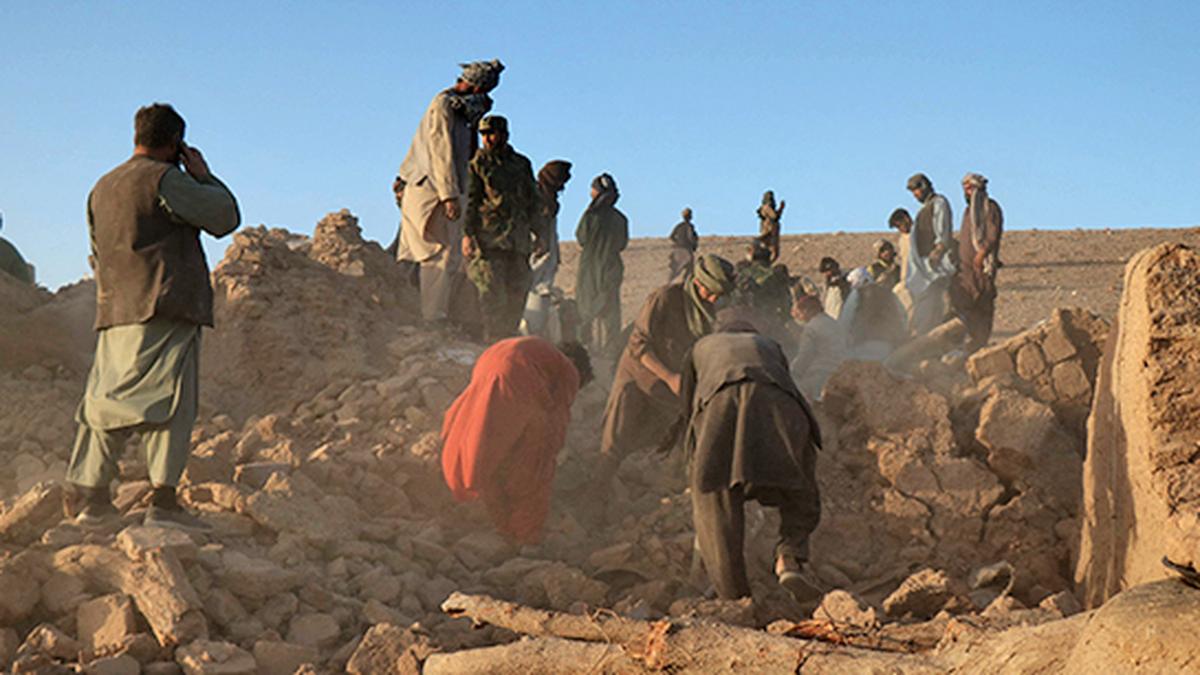People had just seconds to flee their homes when the terrifying sound of earth cracking open reverberated across western Afghanistan’s Herat province.
Nobody knows for sure how many people died in a 6.3 magnitude earthquake on October 7, 2023, or in the strong aftershocks that followed. The Taliban government estimated that at least 4,000 perished. The U.N. gave a far lower figure of about 1,500. Survivors stopped counting, exhausted after digging through dirt to save their loved ones or bury them.

Major challenge for the Taliban
It was the deadliest natural disaster to strike Afghanistan in recent memory.
It was also another major challenge for the Taliban since they seized power in 2021, a test of their readiness to lead a country beset by economic hardship, isolation, devastation from decades of war, and vulnerability to shocks like earthquakes and climate change.

“At that time, the government really cooperated in transporting patients and the dead,” said Ismatullah Rahmani, from the quake’s epicenter in Zinda Jan district, where every home, usually built of mud and timber, was levelled. His brother and nephew were killed, and he spent hours trying to free his wife from under 1 1/2-meter (60 inches) of soil. She survived.
“They opened hospitals and provided water and food to people for free,” he told The Associated Press from his new home in Zinda Jan. He said the Taliban went to camps and helped survivors over several months, a blessing ahead of the harsh Herat winter.
“After that, our aid stopped,” said Rahmani.
Charities had stepped in to build housing for survivors. But the accommodation they built lacks walls so there is no privacy, while the poor design leaves them vulnerable to storms or heavy rainfall. Houses either have no bathrooms or the bathrooms don’t have a roof.
Rahmani’s village, Naib Rafi, still doesn’t have a health clinic or a school. Instead, children are learning in tents.
No financial assistance from Government
The government didn’t provide financial assistance, he said. Senior officials and Islamic scholars visited communities a few times, listened to people’s problems and left.
Ahmadullah Muttaqi, spokesman and member of the Herat Earthquake Commission, said authorities worked with charities and nongovernmental groups to provide shelter and medical assistance.

“People’s problems haven’t been solved, of course, but the first necessity is building houses until they stand on their own feet. They have been given food and hospitals are still working,” he told AP. He said they were still working to rebuild mosques, schools, madrassas and parks.
He did not answer questions about authorities’ preparedness for future disasters.
Afghans were already struggling with displacement, food insecurity and poverty before the quake struck, and the tragedy put further pressure on public services. Aid agencies, which have been propping up Afghan health care and education for the past three years under the Taliban, became even more thinly stretched.
The International Rescue Committee set up feeding corners after the earthquake so mothers could safely breastfeed children and get nutrition counselling. The relief agency said it also fixed water systems, provided emergency cash, hygiene kits, medical and mental health support to tens of thousands of people.
But, with other global crises raging, such support is finite.
International funding for Afghanistan has received less than a third of its target. Changing political priorities, economic troubles and wars are hitting donors’ pockets, especially those in the West.
Widespread opposition to the Taliban’s treatment of Afghan women and girls is also having an effect.
“There is donor fatigue, for sure, but perhaps the bigger problem is a nervousness from many donors about supporting anything but the most urgent life-saving aid,” said Mark Calder from World Vision International.
The U.N. says international recognition of the Taliban as the legitimate government of Afghanistan is nearly impossible while restrictions remain on female education and employment.
The Taliban reject this position, demanding Afghanistan’s seat at the U.N. and saying that sanctions and the country’s continued isolation are hurting people.
Investment in quality development assistance would benefit Afghan women and girls disproportionately and it’s sometimes in their name that a reduction in aid to Afghanistan is promoted, said Calder.
“It’s difficult to imagine that Afghan communities are much better prepared for natural disasters than they were a year ago,” he added.
Herat authorities have been unable to fully meet humanitarian needs, while damaged infrastructure has hampered recovery efforts. A near-total reliance on aid organisations for basics like health care and shelter has left people exposed.
Four of Gul Ahmad Osmani’s children died in the disaster. He heard boys screaming under the soil in his village. It was impossible to pull them out, he said.
He and his surviving family members spent the winter in a tent. “The government took care of us, keeping my wife and children in a camp, but we didn’t see anything from the government that was specifically from them, like flour, cooking oil or rice,” Osmani said. “Our own people, the people of Afghanistan, brought food for several days.”
The helping hands came from other cities, districts and provinces to clear away rubble, bury the dead, and distribute everyday items like clothing.
But it’s been almost six months since NGOs or well-wishers came to help the residents of Zinda Jan. A kind doctor from northern Baghlan province donated money recently.
“There are still earthquakes and these new houses are heavy,” said Osmani. “Children are afraid. The help for the earthquake did not help us.”
Published – October 06, 2024 02:08 pm IST




